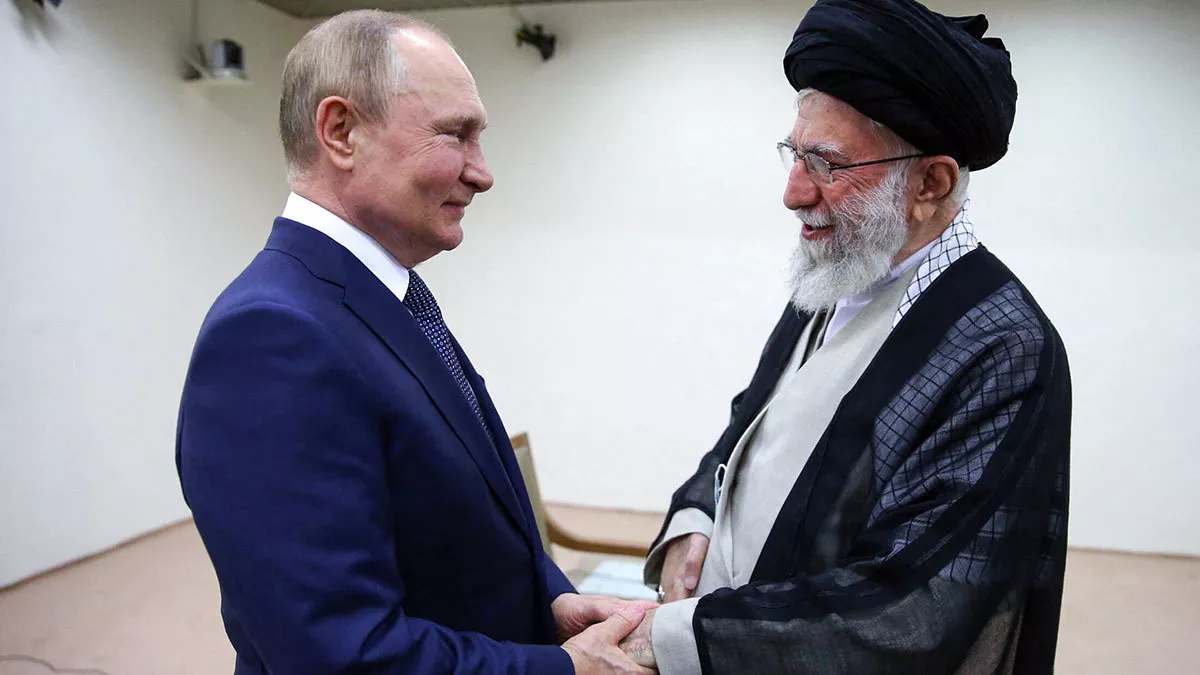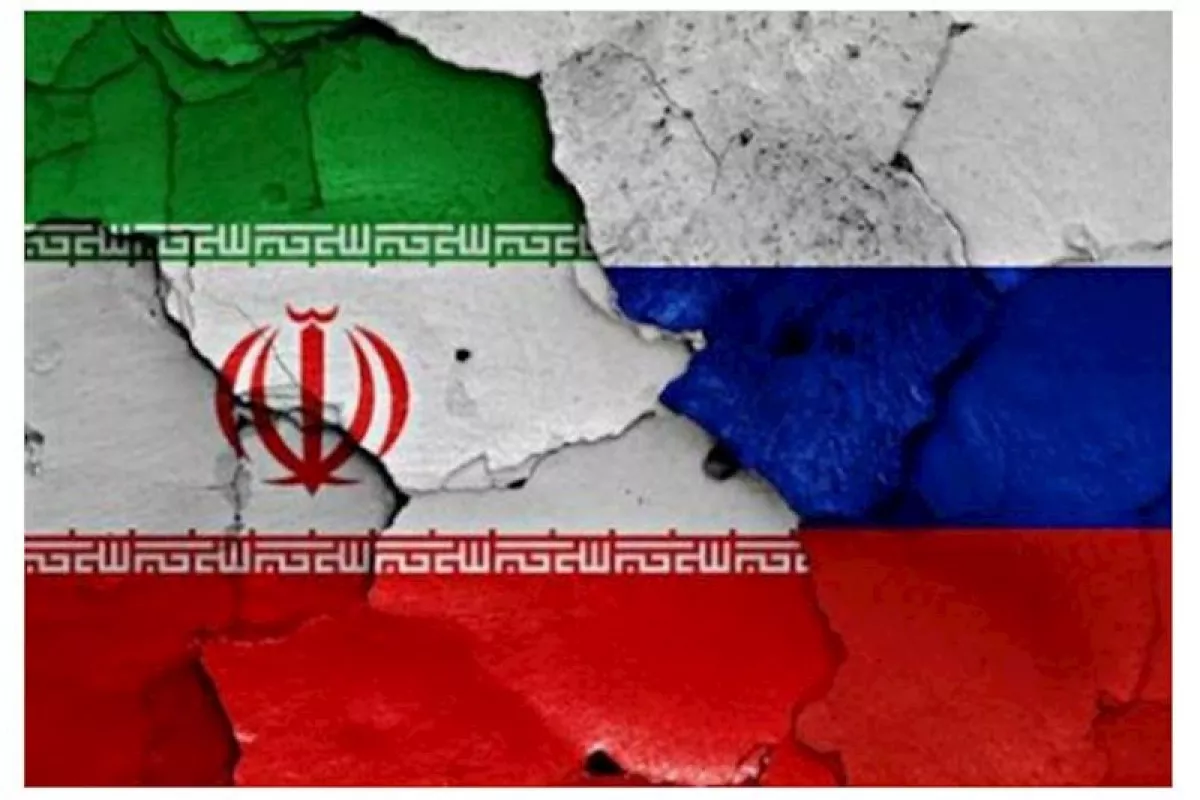Zangezur Corridor: New geopolitical reality and Iran’s dilemma What are Tehran’s concerns?
Recently, the prospect of launching the Zangezur Corridor has reemerged as a key issue in regional discussions, stirring debates among major South Caucasus players. Iranian officials and experts have been particularly vocal, raising concerns about the proposed transport route.
On September 2, Iran's Ministry of Foreign Affairs expressed worry about "potential geopolitical changes in the South Caucasus." Mojtaba Demirchilu, head of the Eurasian Department at the Iranian Ministry of Foreign Affairs, met with Russian Ambassador to Tehran Alexey Dedov to discuss the "inadmissibility of altering internationally recognized borders in the region." Tehran has voiced its dissatisfaction with Moscow's support for the corridor project, which aims to connect Azerbaijan's western regions with Nakhchivan through Armenian territory.
Historical context: Iran and Russia in Caucasus
Iran’s policy in the Caucasus has been closely tied to Russia's interests for centuries. Since the Treaty of Turkmenchay in 1828, which ended the latest Russo-Persian War, Persia was compelled to cede significant territories in the Caucasus and accept Russian dominance in the region. This treaty effectively shaped Tehran's Caucasus policy for centuries, focused on maintaining the Russian-Iranian alliance.

The opening of the Zangezur Corridor is perceived by Tehran as a challenge to this traditional policy, which has been characterized as "Russia First." Statements from Iranian officials criticizing the Zangezur Corridor highlight a shift in Iran’s policy, reflecting a desire to enhance its influence in the South Caucasus. According to some experts, Tehran’s new stance is also linked to efforts to adjust its strategy in response to increasing Western pressure.
Zangezur Corridor: Gateway to Europe or threat to Iran?
For Iran, the Zangezur Corridor, which connects mainland Azerbaijan with Nakhchivan via Armenian territory, is seen as a potential threat to its geopolitical position. The corridor is set to become a crucial link in the global transport network, bridging the East and West, and opening new trade opportunities between China, Türkiye, Europe, and the Caucasus. On the other hand, Iran fears that the opening of this route could diminish its role in regional logistics and reduce its influence over Armenia, with which it maintains strategic relations.
However, these concerns may be overstated or even unfounded. The Zangezur Corridor does not threaten Iran's transport links with Armenia. Iran will still be able to use Armenian territory to access Georgia and the Black Sea. Furthermore, as Iran works on developing alternative routes, such as the North-South Corridor, it could benefit from strengthened economic and logistical ties with Azerbaijan and Türkiye.
Iran and Turkic States: Seeking new cooperation formula
One of the main sources of tension for Iran regarding the Zangezur Corridor appears to be the growing influence of Turkic states like Türkiye and Azerbaijan in the region. Tehran has always been wary of expanding Turkic cooperation, particularly given that a significant portion of Iran’s population consists of ethnic Azerbaijanis. Iran's concerns about increased Turkic solidarity stem from the belief that it could stimulate nationalist sentiments within the country.
However, Iran might benefit from considering this issue from a different perspective. Strengthening cooperation with Azerbaijan and Türkiye could open new opportunities for Iran. Amid growing Western isolation and increasingly stringent sanctions, Iran could leverage the Zangezur Corridor to enhance its position in international trade.
Russia, West, Iran: Struggle for influence in South Caucasus
It is important to recognize that Iran’s recent discontent with the potential launch of the Zangezur Corridor is also tied to a shift in its strategy towards Russia. With Moscow preoccupied with the conflict in Ukraine and redirecting its focus away from the South Caucasus, Tehran is eager to assert its influence in the region. The critical statements from Iranian officials regarding the corridor project may indicate Iran’s intent to adopt a more independent stance, without relying on Moscow.

However, Iran’s policy in the Caucasus is not solely driven by anti-Russian sentiment. Some experts suggest that Tehran is also trying to align its policies with Western interests, which could explain its vocal opposition to the Zangezur Corridor. In this context, Iran is maneuvering between various geopolitical players and even accommodating Western efforts to prevent Russia from gaining sole control over the corridor, while seeking to enhance its own influence in the region.
Opportunities for Azerbaijan and Iran
Azerbaijan views the Zangezur Corridor as a key project for its economic and geopolitical future. The opening of this transport route will strengthen Baku's position as a regional logistics and trade hub and facilitate deeper integration into international transport corridors.
The Zangezur Corridor is more than just a transport route; it represents a significant element of the new geopolitical reality in the South Caucasus. Its launch poses no threat to Iran and, as mentioned earlier, does not aim to alter the border between Iran and Armenia. Therefore, instead of viewing the Zangezur Corridor with hostility, Tehran should consider it as an opportunity to enhance its economic and political position in the region.








